‘Hard-won and precious’ progress in Malaysia-Singapore ties not to be taken for granted, says SM Lee
Both sides have to be aware of potential difficulties and pitfalls, and also stay alert to “the tremendous dividends provided we can navigate around the problems and work together”, says Singapore Senior Minister Lee Hsien Loong on his first official overseas visit after stepping down as prime minister.
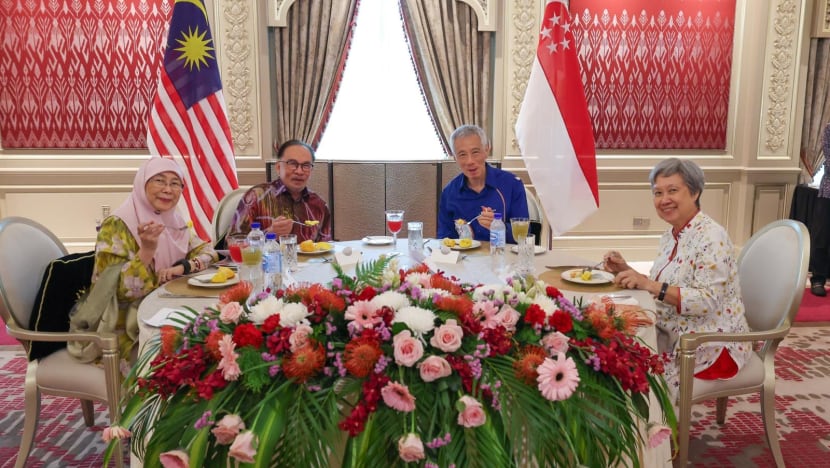
Singapore Senior Minister Lee Hsien Loong and Malaysia Prime Minister Anwar Ibrahim share durian at a lunch hosted by the latter during Mr Lee's official visit to Malaysia on Jul 21, 2024. (Photo: Singapore Prime Minister's Office)

This audio is generated by an AI tool.
KUALA LUMPUR: Leaders and governments of Singapore and Malaysia need to take a strategic perspective, and manage issues “closely and sensitively” from the viewpoint of their overall relationship, said Singapore Senior Minister Lee Hsien Loong in Malaysia.
Speaking to business leaders in Kuala Lumpur on his first official overseas visit since stepping down as prime minister, he also urged both sides to be aware of potential difficulties and pitfalls and stay alert to the "tremendous dividends provided we can navigate around the problems and work together”.
“Then we would have to be able to take an overall view of the relationship and guide it in a safe and wise direction. We have been able to do so with some success in the past, and I hope that we will be able to continue to do so for a long time to come,” said Mr Lee on Sunday (Jul 21) at a dinner hosted by the Kuala Lumpur Business Club.
Mr Lee was in Malaysia from Saturday to Monday on his first official overseas visit since handing over the reins to Prime Minister Lawrence Wong on May 15.
On Saturday, he attended Malaysia king Sultan Ibrahim Sultan Iskandar’s installation ceremony as part of a select group of foreign leaders invited to the event.
Mr Lee had lunch with Malaysia Prime Minister Anwar Ibrahim on Sunday, where they reiterated their commitment to continue advancing Malaysia-Singapore relations, Mr Anwar said in a Facebook post.
In his dinner speech on Sunday, Mr Lee recounted how Malaysia and Singapore have made significant progress in their relationship, citing examples such as Pedra Branca, COVID-19, the Johor-Singapore Rapid Transit System (RTS) Link, and the Johor-Singapore Special Economic Zone (JS-SEZ).
The RTS Link, expected to serve about 10,000 passengers per hour each way to help ease traffic congestion on the Causeway, is on track to be completed by the end of 2026.
Meanwhile, the two countries are also expected to sign an agreement on the JS-SEZ later this year. The zone is expected to create high-quality jobs and offer both fiscal and non-fiscal incentives like tax breaks and easier travel between the two countries.
Mr Lee said Malaysia and Singapore have, over the years, dealt with “difficult and sensitive” issues including water supply, airspace management, and maritime delimitation.
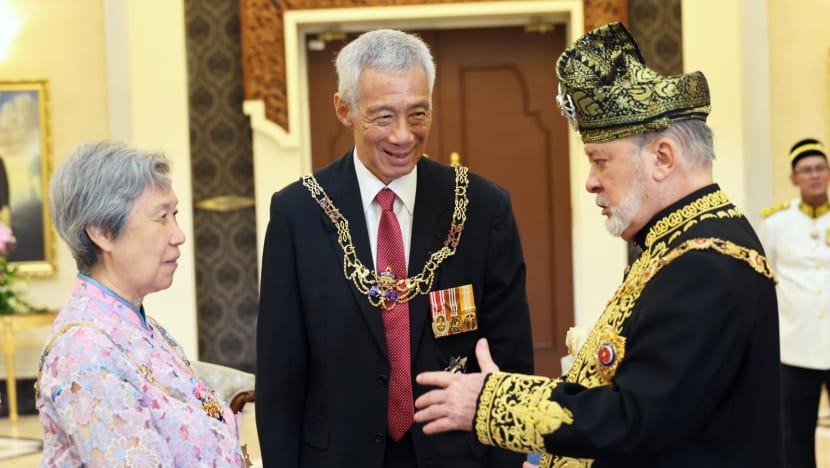
“Discussions have proceeded quietly behind the scenes generally, and I expect they will take some time to reach a conclusion,” he said, adding that overall both sides have made significant progress in their relationship.
“We should appreciate how hard-won and precious this has been – both the specific things we have achieved, and also the overall good state of our relationship. It is not at all to be taken for granted,” he said, adding that the reality is that a close but inherently complex relationship exists between both sides.
SENSITIVE ISSUES
One factor is the difficult and inherently sensitive issues that crop up from time to time, to “which we cannot easily find win-win solutions”, said Mr Lee.
For instance, Malaysia and Singapore are still working on delimiting maritime boundaries around Pedra Branca, which the International Court of Justice awarded to Singapore in 2008.
Malaysia has launched a royal inquiry into how its then-government in 2018 dropped an application to review the judgement, saying the decision to withdraw had implications for the country’s sovereignty.
Meanwhile, at the 10th Singapore-Malaysia Leaders' Retreat held in Singapore in October last year, Mr Anwar and Mr Lee agreed to review the delegation arrangements for the provision of air traffic services over southern Peninsular Malaysia, which were recommended and approved by the International Civil Aviation Organization in 1973.
Malaysia has previously said it is ready to manage its airspace over southern Johor after delegating the task to Singapore 45 years ago, with Transport Minister Anthony Loke in 2019 calling the area Malaysia’s “sovereign airspace”.
Malaysia has also long disputed the price at which Johor sells water to Singapore despite prior agreements and, on Jul 16, local media reported that the government is reviewing all existing agreements related to the issue of selling raw water to Singapore.
At the Leaders’ Retreat, Mr Anwar said the issue should not just be looked at from a price perspective, but also consider the potential for Singapore to study and manage the Johor river it buys water from.
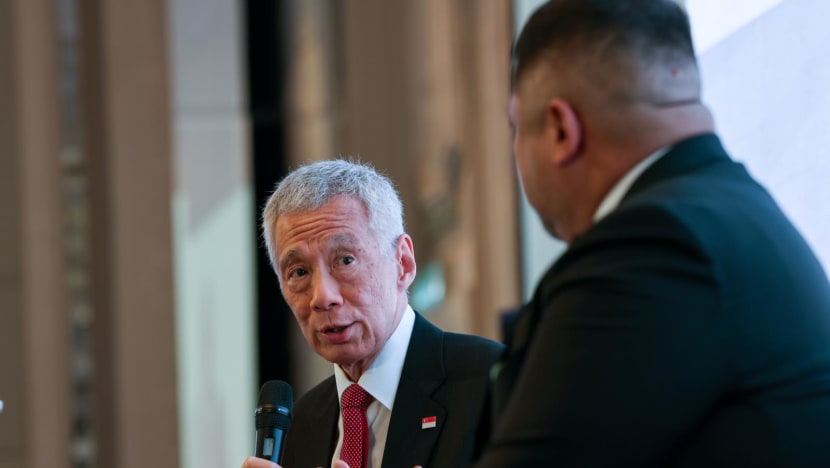
On Jun 12, during Mr Wong’s first overseas trip after taking office, both he and Mr Anwar committed to addressing outstanding issues between the countries.
"Whatever differences we may have on these issues should not affect or colour how we treat the overall relationship, and certainly should not detract from the possibilities of pursuing new areas of cooperation," Mr Wong said.
On such issues, Mr Lee said in his Sunday speech that they are things both sides have been talking about and making progress on, “but the issues keep on being there for many years now”.
“They cannot be simply solved once and for all, over an informal makan or even a feast of durians.”
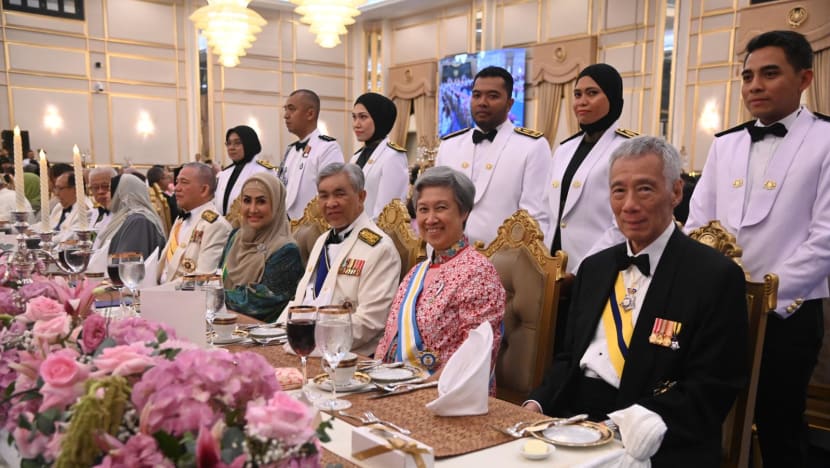
Mr Lee said both countries must put in hard work and serious discussion to identify workable and durable approaches, and accommodate each other’s vital interests.
“You can manage them, you can make progress settling pain points, but you cannot make them disappear. This is a difficult task, but it is possible even with such difficult tasks,” he said.
There is also a need to take into account domestic political sentiments that often make these issues even more complex and delicate, said Mr Lee, who also met on Monday with Malaysia’s opposition leaders as well as unity government ministers at the Shangri-La hotel in Kuala Lumpur.
“Hence if the time is not yet ripe to make a breakthrough on some difficult issue, then the two governments will still continue to do our best to keep matters under control, and to insulate our broader cooperation from these unresolved problems,” he added.
“We must not inadvertently let an issue get politicised and played up or poison the overall relationship, and make things even harder and be very damaging to both sides.”
“EXTRA ZING”, BUT PASSIONS SHOULDN’T GET OUT OF HAND
The other two factors that complicate the Malaysia-Singapore relationship are contrasting societal structures as well as neighbourly rivalry, Mr Lee said.
Mr Lee said Malaysia and Singapore have taken “radically different approaches” to manage their long-term structural reality, referring to how both countries celebrate their multiracial societies that have “inverse images” of each other.
“Singapore is majority ethnic Chinese and minority Malay and others, while Malaysia is majority Malay and minority Chinese and others. Furthermore, our two countries have adopted radically contrasting strategies towards building multiracial societies,” he said.
“Therefore, things that either side does – things that we take for granted within our own societies – can easily raise eyebrows and be misinterpreted by the other side, and can cause misunderstanding or unhappiness every now and then.”
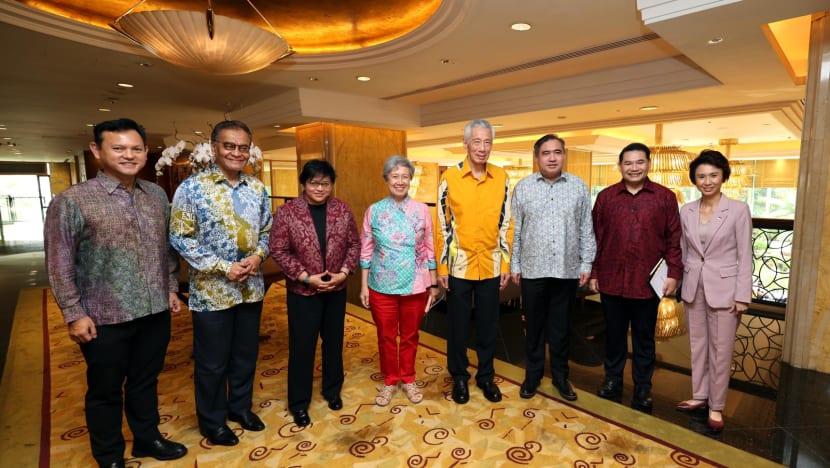
Neighbourly rivalry, Mr Lee said, is inevitable given the countries’ close proximity and shared history.
“Therefore we can have very passionate arguments about football, or songs like Rasa Sayang, or over food: Who invented laksa, where did yusheng come from, whose nasi lemak is the best,” he said.
“These are friendly rivalries, some of it is good – it adds an extra zing to our relationship, when we sit down for drinks there is something new to discuss, and some incentive to outdo each other and to push both countries forward. But we also have to make sure that passions do not get out of hand.”
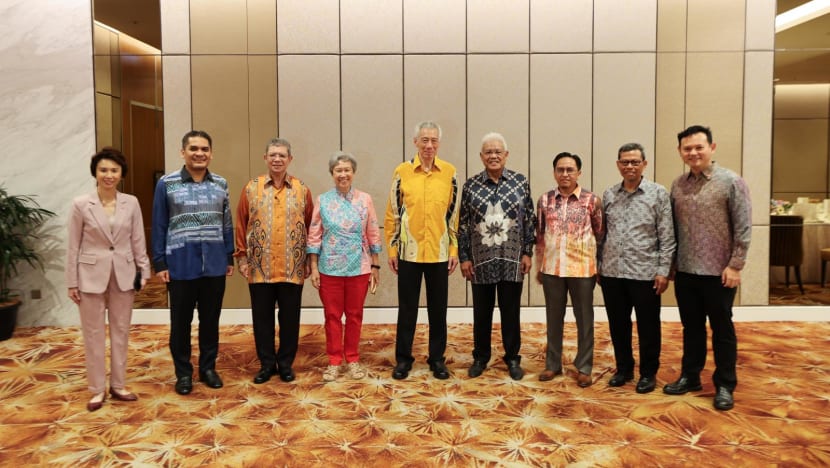
Despite the bilateral issues, different societies and sibling rivalry, Mr Lee said both countries have no alternative but to work together.
“We can refuse to deal with each other, or engage in endless rounds of tit-for-tat. But that is not sensible, nor viable, for either side. We will give each other endless trouble; we will miss out on many opportunities for win-win cooperation. Neither of us will get any joy or benefit out of it,” he said.
“So I am glad that at the highest levels on both sides, we have generally been able to keep the big picture in mind, and have made good progress, even if we have not always agreed on every issue.”
“FULLEST SUPPORT” FOR MALAYSIA’S ASEAN CHAIRMANSHIP
Mr Lee said he is glad that during a time of transition to his successor Mr Wong, Malaysia-Singapore bilateral ties are stable and positive, with Mr Anwar also looking forward to a healthy and strong relationship with the new Singapore leader.
“I have every confidence that PM Lawrence Wong will work with PM Anwar to take our partnership forward,” he said.
“As Senior Minister, I now have a different supporting role. And I will do all I can in that role to strengthen ties further, and help forge new ones between our two countries.”
In an “increasingly troubled world”, Singapore and Malaysia “have every reason” to keep building their relationship, he said.
Global developments that make it much tougher for small countries to keep themselves safe include the conflicts in Europe and Middle East, and “great power contestation” between the US and China, Mr Lee said.
They have affected not just international trade or global supply chains, but also regional security that plays out in cross-strait tensions and in the South China Sea.
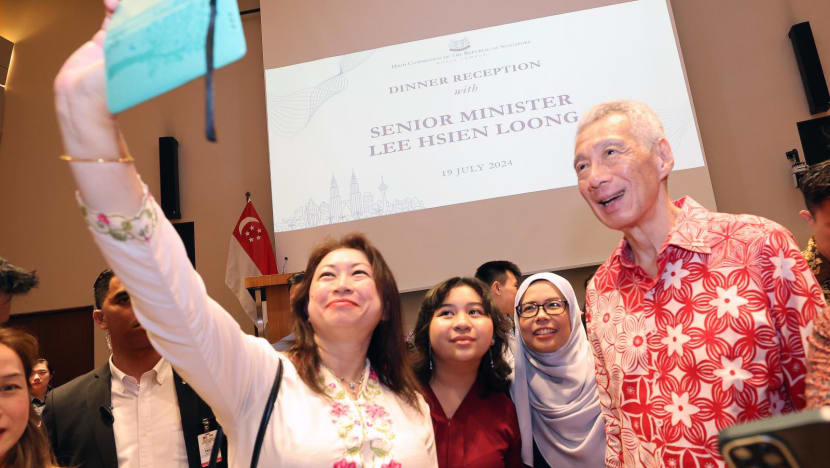
Malaysia can count on Singapore’s “fullest support” when it takes on chairmanship of the Association of Southeast Asian Nations (ASEAN) next year, he pledged.
“It is crucial that ASEAN countries work together to enhance regional stability and integration, and to tackle regional challenges,” he said.
“And within ASEAN, Malaysia and Singapore see things very similarly. That is why both Malaysia and Singapore support ASEAN strongly.”
Mr Lee pointed out that Malaysia and Singapore also cooperate with the broader Asia Pacific region as participants in trade agreements like the Regional Comprehensive Economic Partnership (RCEP) and Comprehensive and Progressive Agreement for Trans-Pacific Partnership (CPTPP).
“Free trade is weakening, fragmenting, but we think these are things we can do to buttress it, and to protect our interest,” he added.
“We also believe in prospering our neighbours, and doing more with them, despite the trend of deglobalisation and decoupling.”
















